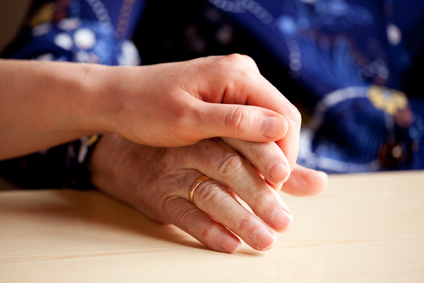What to Do When a Distant Family Member Dies
Death of a Distant Relative
What to Do When a Distant Family Member Dies
It’s never easy to know what to do when tragedy strikes. But, when you first learn of the death of a non-immediate family member, take action right away— or at least as quickly as you are able.
Express Your Condolences
Nothing expresses your concern and solidarity better than showing up in person. If the deceased’s immediate family members live nearby, make it a point to stop in. Sometimes people avoid this step because they don’t know whether it’s the right thing to do, but according to The American Cancer Society, letting someone know you’re there and you care when a loved one dies is more than appropriate— it’s vital. You don’t have to stay long. You don’t even have to cross the threshold of the doorway if you feel like you’ve arrived at the wrong time, but you need to show up long enough to say, “I heard your family member died, I’m so sorry. What can I do to help?”
Honor The Lost Loved One
It’s tradition to send funeral flowers and funeral gifts when a family member dies. Very few families are ever offended by a beautiful floral tribute or an enduring green arrangement to honor a lost life. If you’re purchasing flowers for the service that will eventually be placed by the grave, you’ll want to have them delivered to the funeral home. Another option is to send an indoor living arrangement in a planter directly to the home of those who survive to act as a lasting tribute to the person who passed away.
Offer Your Support
All areas of the country have different traditions. In some areas, it’s often appropriate to take a casserole to the grieving family so they can mark dinner off their list of things that need to be done. If this isn’t a tradition in your family, there are other ways you can help.
- Volunteer to Make Notification Phone Calls
- Go Along to Help Pick Out the Casket
- Take the Children Out Somewhere
- Send a Supply of Groceries for the Grieving Family
Be Tactful
Be there to listen and to validate the feelings of a person suffering from grief and loss by avoiding certain phrases. Never start a conversation by telling the grieving person you know how they feel, that their loved one is in a better place now or that what happened was God’s will. Aside from sounding pompous, statements like this only serve to make the person who’s suffering feel guilty for what they’re going through. Only God knows what His will is. Even if the person’s death ended an agonizing struggle, now isn’t the time to point it out. Allow them to feel how they feel and remember that your main purpose isn’t to argue them back into a healthy outlook, it’s to listen, offer support and find out what you can do to make things easier.
Don’t Forget About the Kids
Remember to consider the feelings and questions of the kids— your kids, that is. Explain what happened in a way that isn’t scarring or terrifying. If you’re not sure what to say, some valuable options are speaking with a school counselor or local organizations such as Hope Hospice that employ professionals who deal in loss and grief every day.





